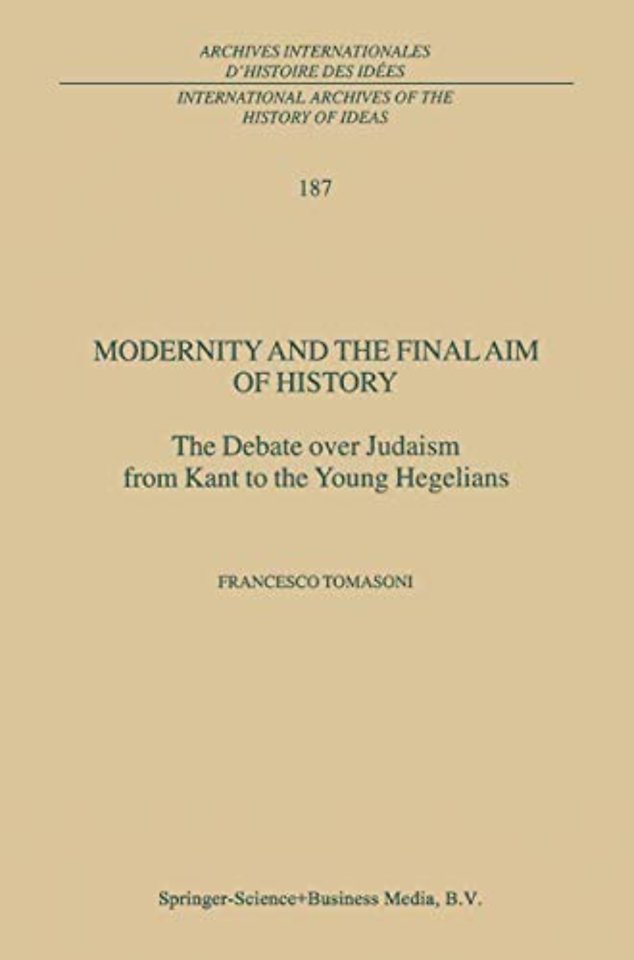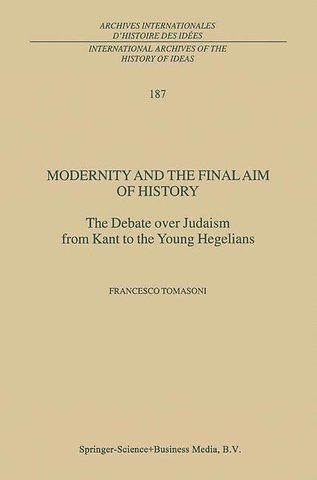Modernity and the Final Aim of History
The Debate over Judaism from Kant to the Young Hegelians
Samenvatting
This book is intended for scholars and students in humanities, history, Jewish studies, philosophy, Christian theology, and for those concerned with the roots of anti-Semitism and with the need for toleration and intercultural pluralism. The book combines the development of German philosophy from the Enlightenment to Idealism, and from Idealism to the revolutionary turning-point of the mid-nineteenth century with the Jewish question.
Specificaties
Inhoudsopgave
Introduction. 1. Prejudices and the philosophy of history. 2. The question of assimilation and the starting point of the study. 3. Our investigation.
One: Reason, Humanity and Religions. 1. 'True' religion and positive religions: Mendelssohn and Lavater. 2. Emancipation, toleration and faith: Mendelssohn, Hamann and Jacobi. 3. The redimensioning of Enlightenment: dialogue between Wizenmann and Kant.
Two: Christianity, People and Nations. 1. Liberty, morality and the state: Fichte. 2. Baptism and nationality. Schleiermacher and David Friedländer. 3. Popular religion and reason: the first writings of Hegel at Tübingen and Bern. 4. The fate of Judaism: the writings of Hegel at Frankfurt and Jena. 5. The Sublime and the election of a people: the Berlin Lessons. 6. The impossible conciliation: Fries.
Three: Atheism, Progress and Revolution. 1. Judaism and myths: Schelling and Strauss. 2. Self-consciousness and social emancipation: Bruno Bauer and Karl Marx. 3. Alienation, monotheism and humanism: Feuerbach, Daumer and Ghillany. 4. Jewish Humanism and Messianism: Gotthold Salomon and Moses Hess.
Conclusion.
Bibliography.
Index of subjects. Index of names.

